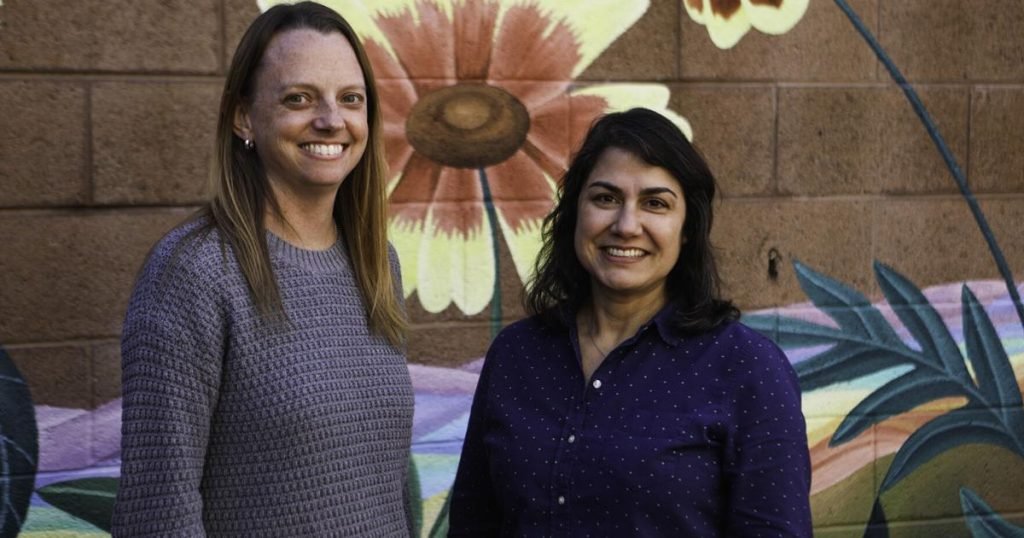SIERRA FERGUSON Sunstaff Reporter
Substance abuse is a contributing factor in 85% of cases in which Coconino County children are separated from their homes by the state’s Department of Child Services (DCS). Juvenile Court Services, where he just received a $250,000 grant from the Department of Justice, is establishing a voluntary family treatment court program at the root of problems that are dividing families in northern Arizona.
Here’s how the program works:
First, parents who struggle with drug use and have DCS cases pending have the opportunity to observe family court sessions. They can decide whether or not to enroll in the program.
“It’s voluntary, and it’s really hard to start on the sobriety path. There’s a very high correlation between trauma and substance use. It means having to unpack that bag, which is really hard, said Sandra Quintanilla, Dependency Program Coordinator.
People are also reading…
Upon registration, participants have access to parenting classes and educational resources. Parents who opt-in connect with substance abuse counselors, family counselors, peers who are also in recovery and have DCS cases open, and resources to help them achieve and maintain sobriety.
“I love that it’s also peer support. It connects dependent parents who are going through the same thing. I think that’s really powerful. The whole process…I think it’s going to be something new in Coconino County.” said Superior Court Judge Angela Kirscher, who is assigned to the juvenile court.
Twice a month, parents on the Family Treatment Court meet with a judge who is hired to oversee the program. Judges, along with a team of service providers, provide parents with encouragement, support, and guidance.
Ultimately, the goal is to reunite children with their families safely and sustainably.
“This program supports parents and supports treatment and recovery as a whole. It also encompasses the whole family. Schult says. “I think that’s the way to heal a family by serving the whole family instead of working on individual parts.”
Quintanilla said the policies and procedures Coconino County plans to use are evidence-based.
“We know that kids do better when they’re with their families,” Schuldt said, adding that success is measured by healthy family reunions.
Programs like this have been very successful statewide. Counties with similar court programs have over 90% family reunification rates compared to 50% rates when families are unable to attend.
“It absolutely makes sense. Nobody has a crystal ball, so why not see what works and try to copy it,” said Casie Lightfoot, director of juvenile court services. Told.
Coconino County, in partnership with Pima and Yavapai Counties, launched a family therapy court.
Pima County’s RAISE Family Healing Court provides guidance and support to similar programs across the country, particularly from Anchorage, Alaska, far from home, to Mojave and Coconino counties near home. increase.
Coconino County Juvenile Court Services immediately reached out to Pima County for assistance, and the two organizations began sharing information. Like the Coconino County Family Treatment Court, RAISE is evidence-based and mostly funded by grants.
RAISE stands for recovery through advocacy, inspiration, support and empowerment. The principles outlined in the acronym have guided family therapy courts to success since 2001.
In Pima County, 45% of parents who separated their children from home were eventually reunited with their children. Parents who participate in RAISE (also a volunteer program) for any length of time are 84% more likely to reunite with their child. The family reunification rate for graduates of the Pima County Recovery Court Program is 100%.
“These positive outcomes benefit the individual, benefit the children, benefit the extended family, and benefit the extended community. Because the exponential cost of being deprived and unable to unite is actually an indefinite cost to the entire community,” said Jenny Zelt, superintendent of the RAISE Family Treatment Court in Pima County. .
Zelt said her team was thrilled when Coconino County contacted them and explained they were starting their own court.
“In the next month or so, they will be observing our program so that we can visually see how some of our components are performing,” says Zelt. “Anyone who has experienced addiction, or has had a family member or friend who has experienced addiction, will know how it is to be in recovery, establish abstinence, and maintain long-term recovery. I hope you understand how difficult it is.
“It follows logic to take a collaborative approach and feel supported through the process rather than being ashamed or condemned by the system as a whole. Sobriety is very logical.”
Sierra Ferguson can be reached at sierra.ferguson@lee.net.
Sign up for our crime and court newsletter
Stay up to date on local public safety news with this weekly email.
















